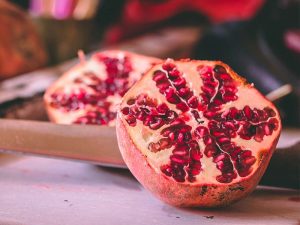Foods You Should Eat This Winter
When you head to the grocery store, what are you buying during the winter months? Are you looking for fresh foods? Are you looking for foods that will boost your immunity?
It can seem a little more difficult to find fresh foods during the winter months, but it is possible. And there are lots of foods out there that contain a wide variety of vitamins and minerals that can work to keep you healthy. Need some suggestions? Here are a few to help!

- Citrus Fruit: The winter months are peak season for citrus fruit – so pick them up and enjoy! You know all about the vitamin C they offer, but citrus fruits have also been shown to boost your good cholesterol (HDL) and lower your bad cholesterol (LDL) and triglycerides.
- Hardy Leafy Greens: Kale, collards, and chard can all handle the colder temperatures, so you may see more of these leafy greens in the supermarket. They are high in vitamins A, C, and K – which are all fantastic for your immune system.
- Root Vegetables: Good produce can be hard to find with the colder weather, but root vegetables can withstand the cold. Look for carrots, beets, and turnips. With lots of fiber and various vitamins and minerals, you’ll be choosing vegetables that are not only tasty but good for you.
- Oatmeal: Oatmeal is a really convenient breakfast food, but it’s also good for you. Full of fiber and high in zinc, oatmeal can aid your immunity and heart health.
- Sweet Potatoes: Sweet potatoes are high in fiber and vitamin A and potassium. While their sugar content is higher than a regular baking potato, the nutritional value of a sweet potato is greater – making them a good choice. Sweet potatoes have been shown to boost your immunity and reduce inflammation – which is a great added bonus.
- Almonds and Walnuts: Almonds and walnuts are available year-round, but if you’re searching for a healthy snack in the winter, they make for an excellent option. They are high in Omega-3 fats and antioxidants. These two nutrient-dense foods have been shown to reduce inflammation and improve heart and brain health. A one-ounce serving has between 170-185 calories, so be sure to watch your portions.
- Cabbage: If you think you’re not a fan of cabbage, it might be time to give it another try. Cabbage has tons of vitamins and minerals, including vitamins C and K, as well as folate, fiber, antioxidants, and anti-carcinogenic compounds called glucosinolates. While eating it raw maximizes the nutritional impact of cabbage, it still packs a punch when cooked, too – and there is no shortage of great recipes out there for cabbage.
- Pomegranates: Pomegranates are full of antioxidants and have grown in popularity in recent years. They make a great addition to a salad or just to eat as a snack. And if you’re wondering how you open one, here’s a guide to help you.
- Ginger: You can find ginger year-round, but it is often harvested during the fall and winter – so it will be freshest now. Throughout time, ginger has been shown to improve digestion, soothe upset stomachs, and boost your immune system.
- Acorn or Butternut Squash: With lots of vitamins A, B6, C, and K, along with potassium and folate, acorn or butternut squash are fantastic choices in the winter. Additionally, they are relatively low in calories and simple to prepare.
- Apples: Apples are hardy and a great fruit to grab during the winter months as they store well after being picked. They contain vitamin C and a soluble fiber called pectin, which has been shown to reduce cholesterol levels.
Don’t let the winter months have you reaching for unhealthy foods when you go to the grocery store. Add some of these to your cart to help keep you healthy all winter long!
Recent Posts







